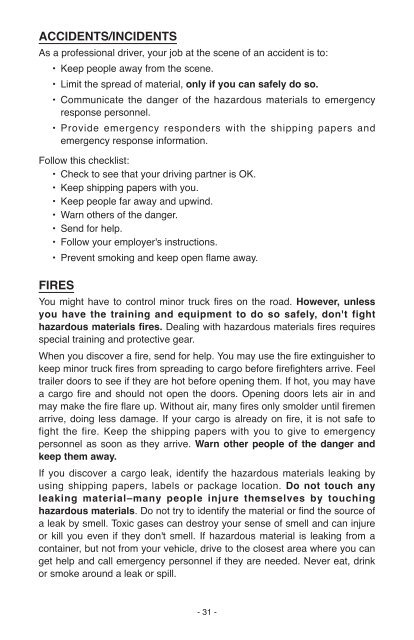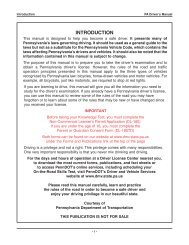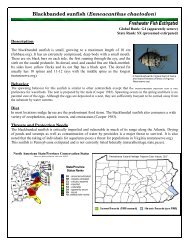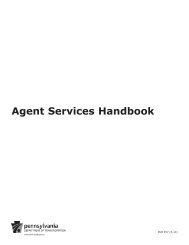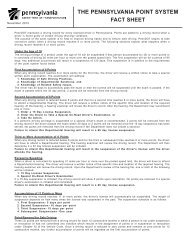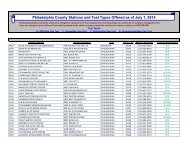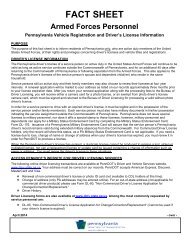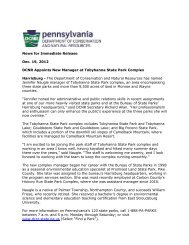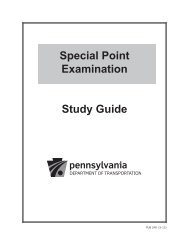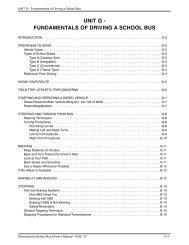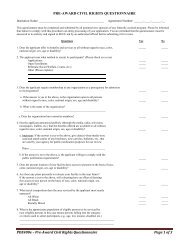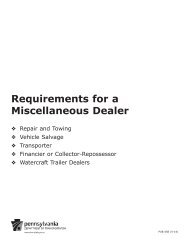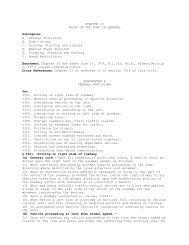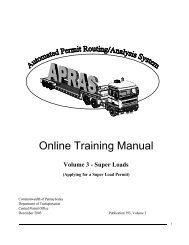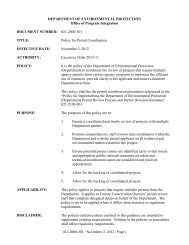PennDOT - Hazardous Materials Endorsement Renewal Manual
PennDOT - Hazardous Materials Endorsement Renewal Manual
PennDOT - Hazardous Materials Endorsement Renewal Manual
Create successful ePaper yourself
Turn your PDF publications into a flip-book with our unique Google optimized e-Paper software.
ACCIDENTS/INCIDENTS<br />
as a professional driver, your job at the scene of an accident is to:<br />
• Keep people away from the scene.<br />
• Limit the spread of material, only if you can safely do so.<br />
• Communicate the danger of the hazardous materials to emergency<br />
response personnel.<br />
• Provide emergency responders with the shipping papers and<br />
emergency response information.<br />
Follow this checklist:<br />
• Check to see that your driving partner is OK.<br />
• Keep shipping papers with you.<br />
• Keep people far away and upwind.<br />
• Warn others of the danger.<br />
• Send for help.<br />
• Follow your employer's instructions.<br />
• Prevent smoking and keep open flame away.<br />
FIRES<br />
You might have to control minor truck fires on the road. However, unless<br />
you have the training and equipment to do so safely, don't fight<br />
hazardous materials fires. Dealing with hazardous materials fires requires<br />
special training and protective gear.<br />
When you discover a fire, send for help. You may use the fire extinguisher to<br />
keep minor truck fires from spreading to cargo before firefighters arrive. Feel<br />
trailer doors to see if they are hot before opening them. If hot, you may have<br />
a cargo fire and should not open the doors. Opening doors lets air in and<br />
may make the fire flare up. Without air, many fires only smolder until firemen<br />
arrive, doing less damage. If your cargo is already on fire, it is not safe to<br />
fight the fire. Keep the shipping papers with you to give to emergency<br />
personnel as soon as they arrive. Warn other people of the danger and<br />
keep them away.<br />
If you discover a cargo leak, identify the hazardous materials leaking by<br />
using shipping papers, labels or package location. Do not touch any<br />
leaking material–many people injure themselves by touching<br />
hazardous materials. Do not try to identify the material or find the source of<br />
a leak by smell. Toxic gases can destroy your sense of smell and can injure<br />
or kill you even if they don't smell. If hazardous material is leaking from a<br />
container, but not from your vehicle, drive to the closest area where you can<br />
get help and call emergency personnel if they are needed. Never eat, drink<br />
or smoke around a leak or spill.<br />
- 31 -


